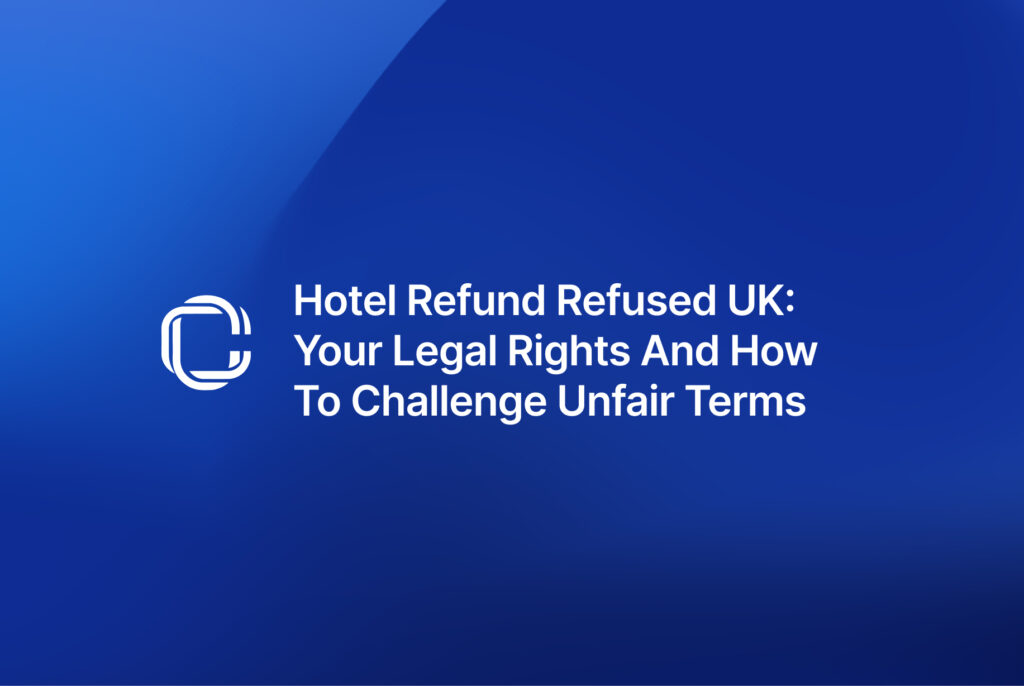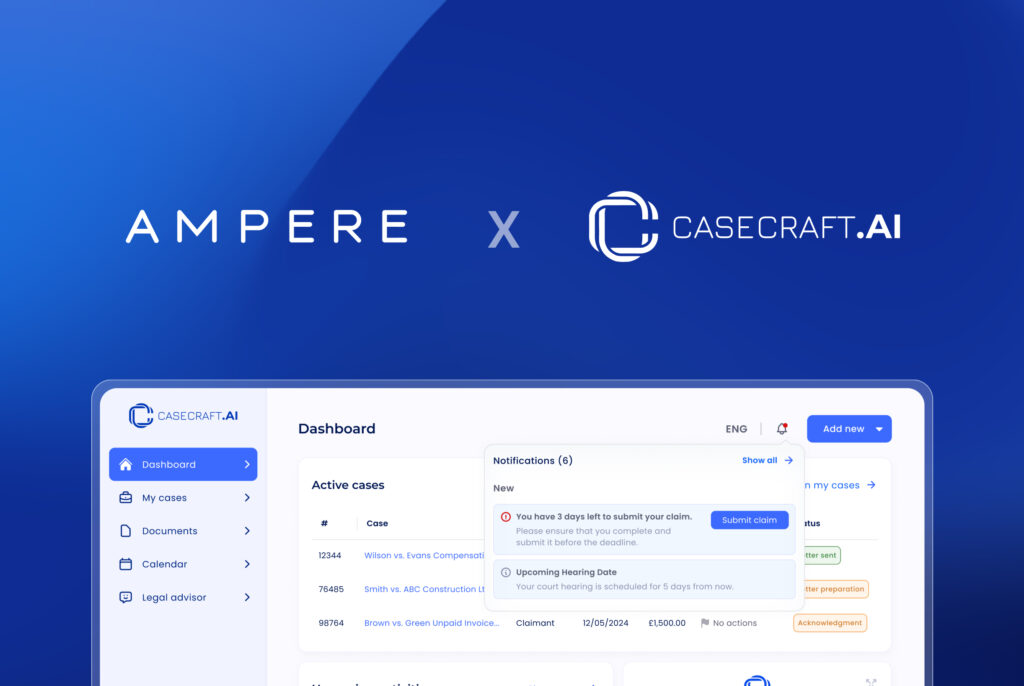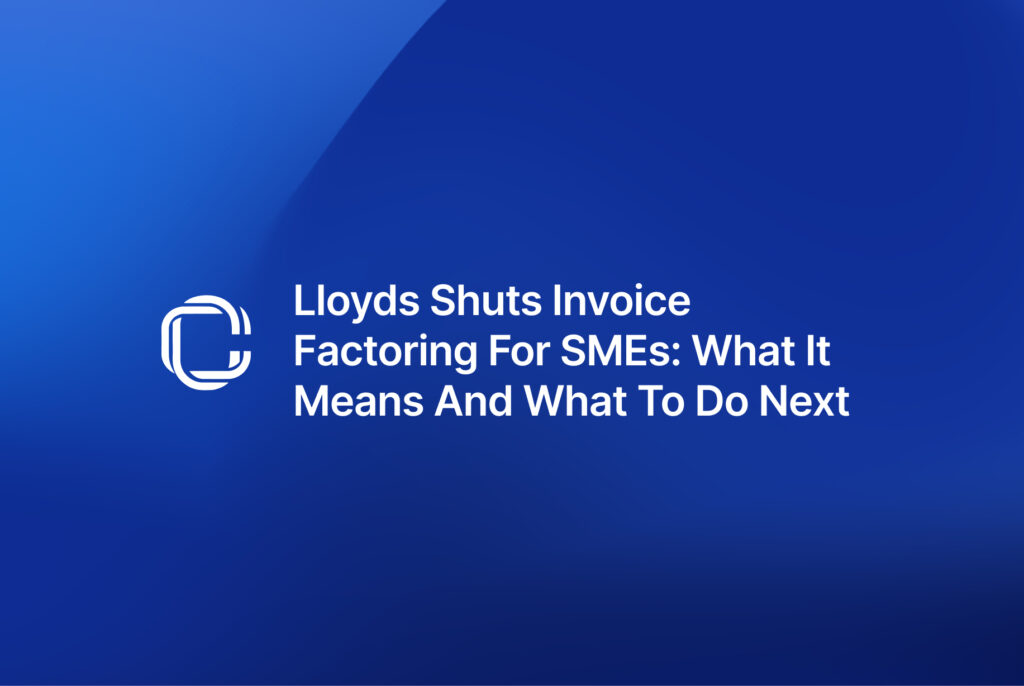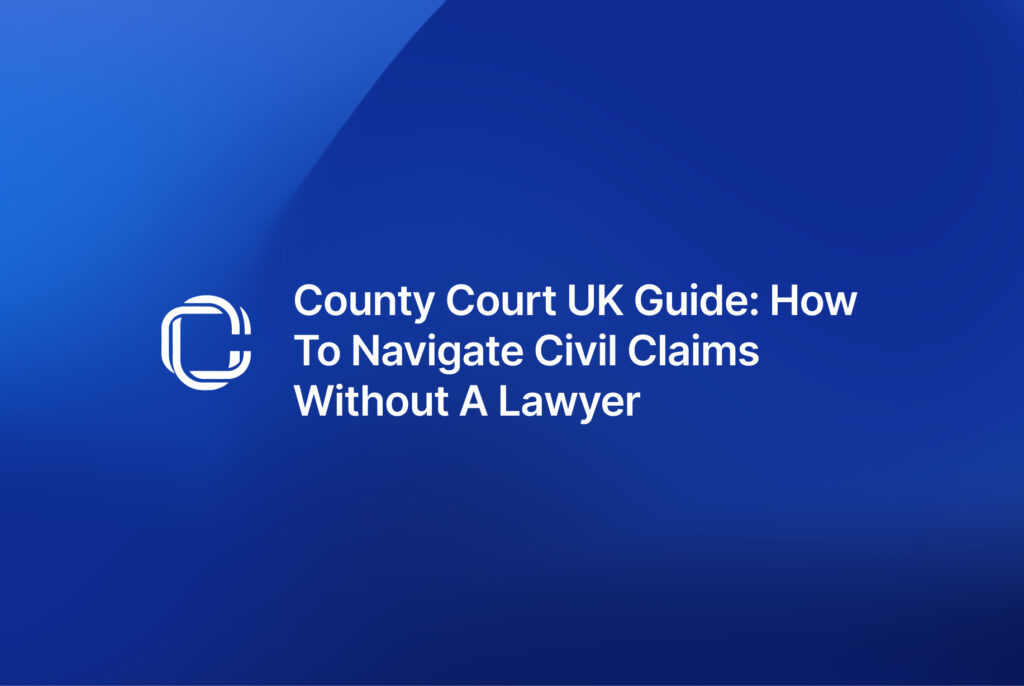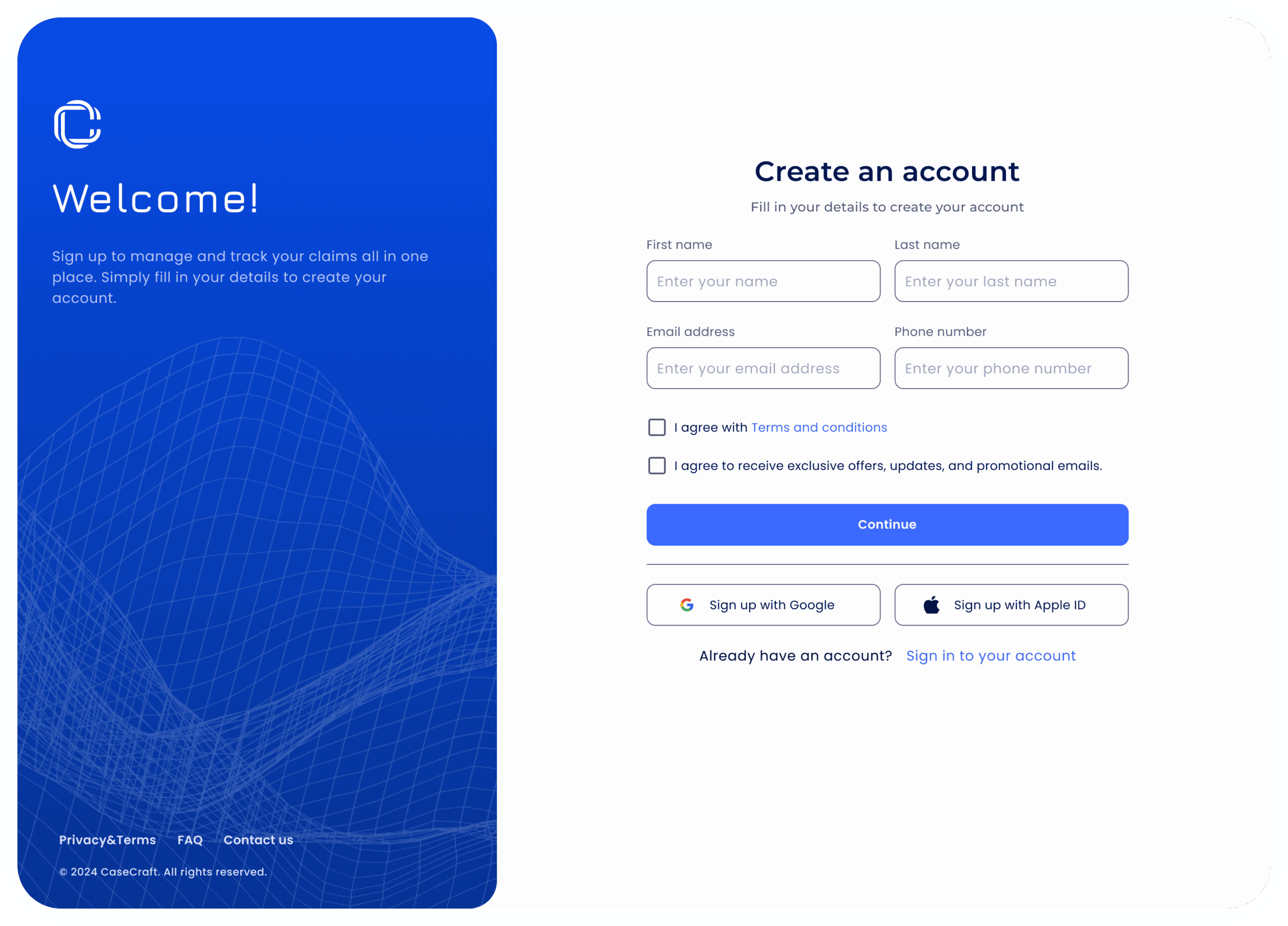Learn how small claims court offers UK startups a low-cost legal path, plus how CaseCraft.AI simplifies the process.
Small claims court is a useful avenue for small businesses where they feel they have lost money through bad service or simply unpaid bills. Always try to recover your money first before you go to court, however, if you have exhausted all other avenues this guide will take you through the next steps you should take.

What are small claims?
Small claims refer to disputed cases whereby the amounts of money in dispute are small (normally being up to £10,000 in England and Wales). Small claims are meant to be a simpler, faster and cheaper alternative to formal court proceedings, where you do not need to rely on a lawyer to file for a lawsuit.
This should act as a basic lifeline for many small businesses and startups: you should enforce a contract, recover a debt, or resolve a dispute without the high costs of a legal fee. Now let’s imagine this: if a client has not paid an invoice for some services for a total of £2,000, there is an option to do a small claim for that amount without the expensive cost of using a solicitor. Also, the speed at which CaseCraft.AI can deal with the procedure is much quicker than the traditional court process. You can read more about small claims here.
Why Every Startup Should Know About Small Claims
Cash flow is vital to startups. While an overdue or unpaid invoice may be annoying at times, it may present an obstacle to payroll, or limit new investment or growth plans. While a whole host of disputes can be resolved informally at some point, they will need finality, and invariably, that equates to more legal action.

The problem exists on a vast scale across the UK. Government research shows that late payments cost small businesses £22,000 every year and waste 56 million hours that could be spent running their business. The Federation of Small Businesses found that small companies spend £11.6 billion each year dealing with legal fights, and most of these fights (72%) are about people not paying their bills. Seven out of ten small businesses have had to deal with at least one legal dispute recently, with the average unpaid amount being £18,000. Nearly half of all invoices get paid late.
This is precisely where small claims court comes in handy for you. Instead of worrying about unpaid debts and spending heaps of money on lawyers, you can just get on with it, all by yourself. Lots of people settle after being served with the court papers during the “Letter Before Action” stage since they know you are serious and that they need to pay you what is owed.
We appreciate that ‘court’ and ‘lawyer’ can be intimidating words, especially for new startups that are under immense pressure. This is why we built CaseCraft.AI. Our technology guides you through each step of the process, so you don’t get bogged down in a morass of legal jargon.
Common StartUp Disputes that Small Claims Court can Hear
Unpaid invoices
When a marketing agency completes a campaign for a client, most clients are remiss in paying a portion of their bill. The marketing agency can bring the issue to small claims to recover the full amount of the unpaid invoice.
Incomplete deliverables
A startup ordered equipment from a vendor. The vendor shipped some equipment, but not all due to damage in transit. The startup has the option to demand all of the equipment or demand a refund for their payments.
Breach of contract
A customer of a software developer signs a contract for a particular piece of work and breaches the contract by not paying for work performed, or the customer stops paying for services that were prematurely terminated.
Verbal or informal contracts
Startup partners or founders make informal agreements for certain work, and one party does not hold up their end of the informal agreement.
Small claims courts can address many issues that start-ups face for which an attorney is not necessarily needed.
A Step-By-Step Guide to Submitting a Small Claim for Your Startup
Step 1: Establish Your Claim is Eligible
Small claims case: For most applications related to your business’s start-up, claim, counterclaim or service faults related to goods and services to a maximum of £10,000 (England & Wales).
Step 2: Gather Your Evidence
Here’s a quick list for start-up evidence:
- Contravention of concluded contracts or contracts of sale.
- Communication and payment follow-ups for relevant periods.
- Bank statements showing payment defaults.
Complete an evidence bundle for the court.
Step 3: Attempt Resolution Without Court
Reason: The party is expected to try and resolve the issue by other means (including amicable negotiations) before it is progressed to a court.
CaseCraft.AI makes it easy! Through our platform, you can:
- Create a pre-action protocol letter (demand letter) automatically.
- Manage timeframes for responses.
- Provide templates for counter-offer and offer of settlement email compositions.
Step 4: Submit your Claim
We will also assist you in the following:
- Will complete the claim form using input-based data.
- Won’t miss common submission errors.
- Will submit the claim on the user’s behalf through the government queue.
Your only costs are the court fees and CaseCraft.AI, just £15 for our service.
Step 5: Monitor and Respond
After submission, the replying party has 14 days with a 28-day extension for acknowledging.
Claim submission AI Components:
- Automated alerts for all identified timeline obligations.
- Makes recommendations for taking an enforcement action, making the relevant recommendations for enforcement action (e.g., High Court enforcement, charging orders).
- Prepares any enforcement documents for the court.
- Tracks the enforcement costs, deadlines and the statutory time limits.
- Generates responses to defensive actions.
If there is no response, provide a recommendation to request a judgment (e.g., default judgment).
How to Safeguard Your Startup from Future Small Claims
While it helps to know the steps to the small claims process, you ultimately want to avoid disputes before they happen. Most startups can generally reduce disputes by:
- Using Written Contracts: Written contracts should provide detail about the work performed, what was to be paid, the deliverables, and any dispute escalate process.
- Journaling: As an entrepreneur, you should be journaling conversations, approvals, and changes.
- Sending Notice: If unpaid invoices are unpaid, keep following up quickly and professionally.
- Professional Communication: Communicate based on facts, but always remain respectful and courteous. Do not communicate in an emotive or confrontational manner.
- Seeking Early Advice: If you suspect a dispute might arise, see a lawyer or accountant early. Most lawyers won’t charge you for your first session.
Not only are the above actions a way to reduce the chances of having some obligation disputes arise, but they also provide more robust evidence if you ever do end up in court.
How CaseCraft.AI Supports Startups with Small Claims
At CaseCraft.AI, we aim to help startups and small businesses navigate their legal disputes so that they can act with confidence, but at the lowest cost possible. Our online platform gives you the assistance you need at each step of the process.

- Case Analysis: If you are being sued more than the small claims jurisdiction (which is usually £10,000 maximum), you will know within minutes.
- Letters Before Action: Create professional letters quickly and compliantly and put your opponent on notice to settle the dispute before proceeding to court.
- Document Management: You will be able to digitise and manage your documents, resulting in far less hassle and time wasted.
- Claim Preparation: Case Craft.AI assists you in properly and efficiently completing your claim form.
- Management of Deadlines: You won’t miss any court deadlines or deadlines to comply with procedural or judicial requirements.
CaseCraft.AI will help you to defend your rights quickly and affordably!
Small Claims as a Startup-Friendly Legal Service.
The small claims court process is a great resource for UK startups to be able to defend both themselves and their business. Starting a legal process can feel daunting, but the process is straightforward and achievable, especially for startups using the small claims process. You can do it, even if you choose to act on your own behalf.

Being prepared and understanding the simple process of small claims, while using the proper tools at CaseCraft AI, will enable startups to effectively deal with matters such as disputes or switching from large, scary roadblocks to smaller, more defined steps toward resolution and, hopefully, achieving justice.
If your startup is dealing with an unpaid invoice, a breach of a contract, or similar, do not allow it to weigh you down. Take control today with CaseCraft.AI, your partner for clear, affordable, and confident support for undertaking small claims applications.
FAQ: What UK Startups Should Know About Small Claims
What counts as a small claim for UK startups?
A small claim covers straightforward disputes worth up to £10,000 in England and Wales—typically unpaid invoices, faulty goods, incomplete services or breaches of simple contracts. Startups can file these without a solicitor, keeping costs low and processes fast.
Why should startups understand the small-claims process?
Late payments drain cash flow and slow growth. With nearly half of invoices paid late and disputes costing billions annually, knowing how to use small claims helps founders recover money quickly without expensive legal intervention.
What evidence do startups need for a small claim?
Useful evidence includes written or informal contracts, emails, payment chasers, bank statements, delivery records and any documents showing work completed or goods received. An organised evidence bundle strengthens your case and encourages settlement.
How can CaseCraft.AI help startups manage small-claims disputes?
CaseCraft.AI automates demand letters, prepares compliant claim forms, manages deadlines, organises evidence and guides enforcement steps. For just £15 plus court fees, startups can pursue overdue payments confidently without hiring legal counsel.






